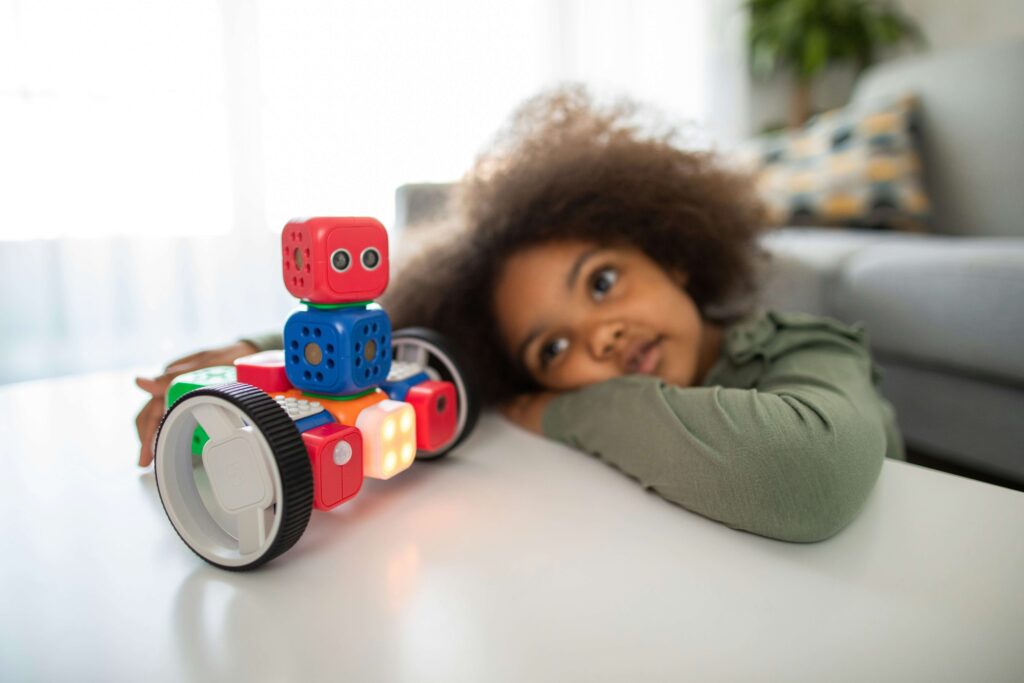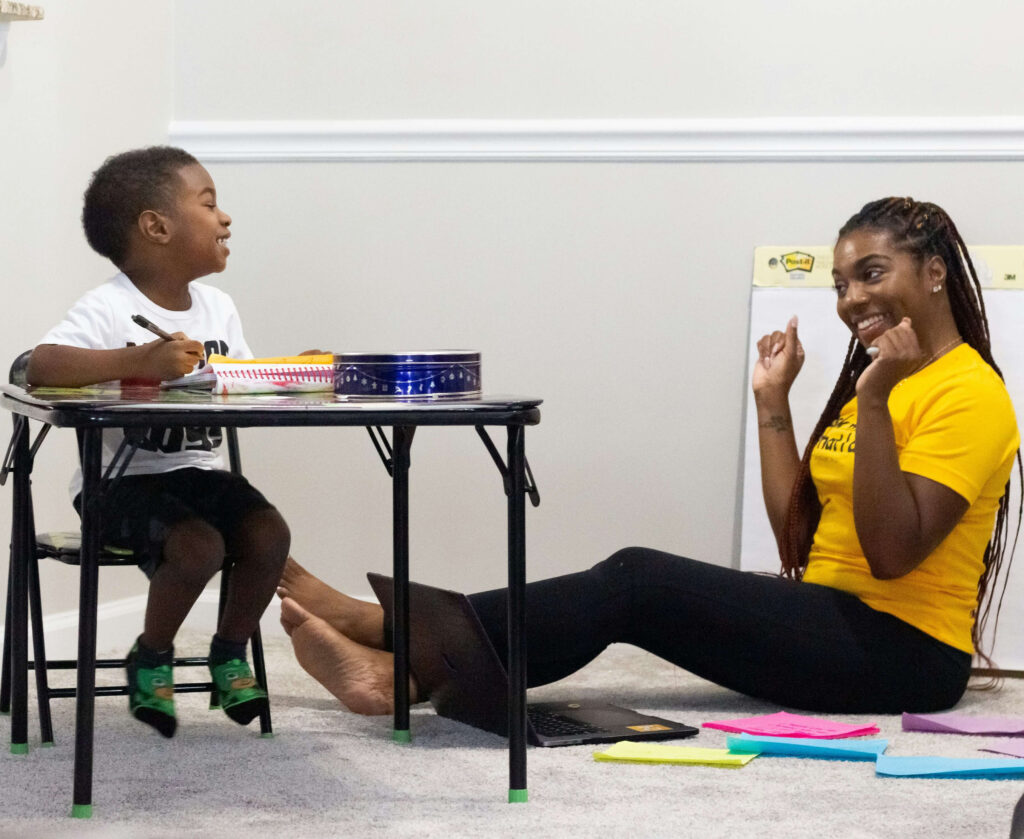

Play With ME!!!
Guided, self-guided, imaginary, or real?
January 5, 2024by CHALK Preschool Admin
Am I doing enough?
Managing the pressure to engage with your kids can leave you feeling like you’re not doing enough or not doing it right.
Do the words “Play with me!”
Cause you to feel
- Honored
- Excited
- Helpful
Or
Cause a sense of
- Duty
- Dread
- Guilt
Do you need to be your child’s playmate at all times? Can they play alone and use their imagination or should you be offering “real” life experiences? Let’s face it, parenting is a tough gig, especially with the amount of recommendations out there on what is best for your little one.
Daily, kids are taken on errands and relegated to a shopping cart or a stroller for efficiency. Instead of considering their companionship as a complication to completing tasks, it is an opportunity to provide your child with hands-on experiences. With a small amount of planning and a large dose of patience, you can turn a trip to the store, or the auto repair shop into a life lesson for your little one.

However, continuing to encourage your child to “pretend play” is important. Providing your child with an opportunity to test their ever-growing creativity, independence, and skills around other kids in a safe environment adds to a well-rounded and balanced upbringing.
In this blog post, we offer you a chance to relax a bit on what the right choice is when it comes to choosing real experiences over pretend play and “managing” your child’s playtime.
Adam Walker MA, LLP, explains that imaginative play has critical benefits in response to the idea that parents relegating their little ones to pretend activities instead of doing them for real deprives children of a sense of accomplishment.
With an increased emphasis on “real” experiences should parents make changes, or even cut out pretend play opportunities, to avoid “depriving” their kids? Absolutely not, says licensed psychotherapist Adam Walker with Sollars and Associates, who also serves as a classroom clinician at Walnut Lake Preschool in West Bloomfield, Michigan.
“I agree that children do need opportunities to feel like they’re important in the world, like we take them seriously and like they have a role to play,” says Walker, who specializes in working with children ages 3 to 13. But it shouldn’t be suggested that imaginative play could be harmful or unnecessary, or that it somehow takes the place of real-world experiences. The two aren’t mutually exclusive, Walker points out.
“I think it was worded to cause a stir,” he says. “But we should be talking about giving children these opportunities to have a little more responsibility and to be taken ‘seriously’ in the sense that we’re respecting what they’re trying to communicate and ‘seriously’ as future adults.”
Encouraging real-life experiences instead of play brings up a slippery slope, too, since it’s not always safe or feasible to let kids play with real kitchen utensils, feed a baby instead of a doll, etc.
“If I show any child a picture of real ice cream versus wooden ice cream, everybody knows what they’re going to pick,” he says.
And the benefits of imaginative play shouldn’t be minimized.
“I have absolutely no doubt that make-believe is so incredibly important for children because they get to experiment, they get to try things out, they get to look at something from many different angles,” he says, pointing out that realistic toys aren’t even necessary. “I have blocks in my office that children make-believe are families… their imagination is rich.”
In Walker’s practice, children often use make-believe to act out difficult situations and share how they feel.
“It’s the only way they have to communicate and make sense of what’s going on,” Walker says, calling out the first line of the column that calls pretend play a “charming” activity. “It’s not really charming. It can be if you want to minimize it. It’s not always.”
But overall, Walker does agree that it’s beneficial for parents to take the extra time to involve their children in cooking, cleaning, and other “real-world” activities when possible.
“It takes extra work to incorporate a small child into your routine, but that work will pay off. Find a safe job that they can do,” he encourages, like putting chopped veggies into a bowl or helping rake the leaves. “It will take them a long time, it won’t be done the way you want but they’re contributing and they get a real sense of what it takes to maintain a house and they also get the satisfaction of being thanked for their job.”
And parents should remember it’s also important to encourage their child’s imagination.
“Ask your kid what their play is instead of telling them something looks cute or that they have to hurry up and stop,” he suggests. “Take that extra five minutes and say, ‘So, what’s this?’”

As always, balance is key. Finding a preschool that fosters these same practices helps reinforce such ideas. Before you know it, you won’t even realize you are doing it and it all becomes 2nd nature.
It is important to recognize that in a preschool setting much of what students experience in their self-directed play is imaginative… But understanding the importance of real activities both at school and at home is paramount.
The interview portion of this blog is an excerpt from an article about engaging in real activities vs. make-believe by Jessica Schrader
